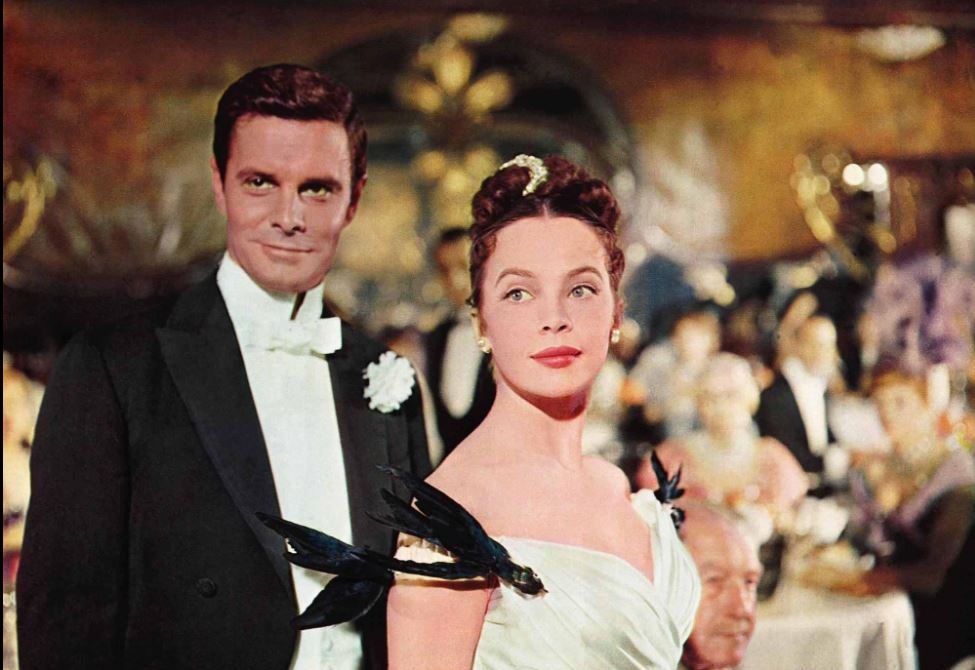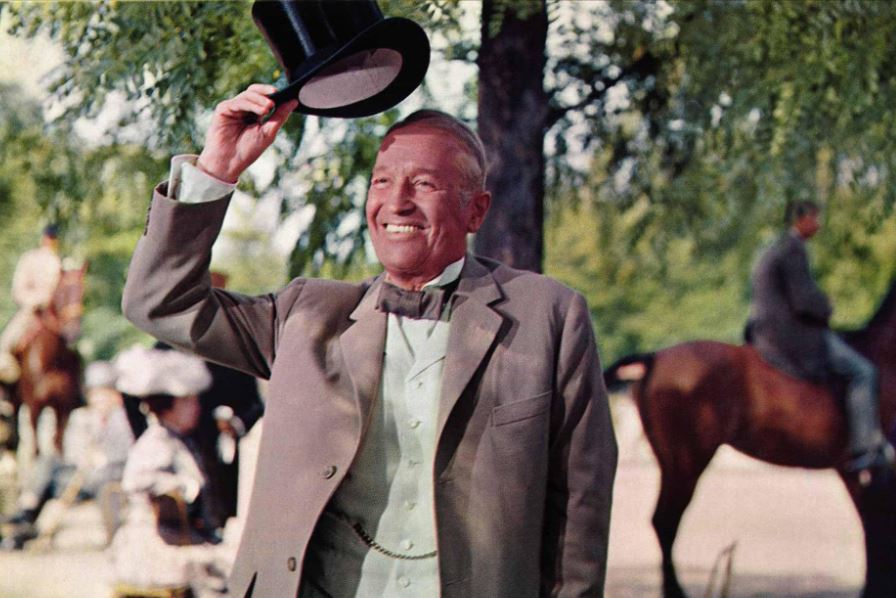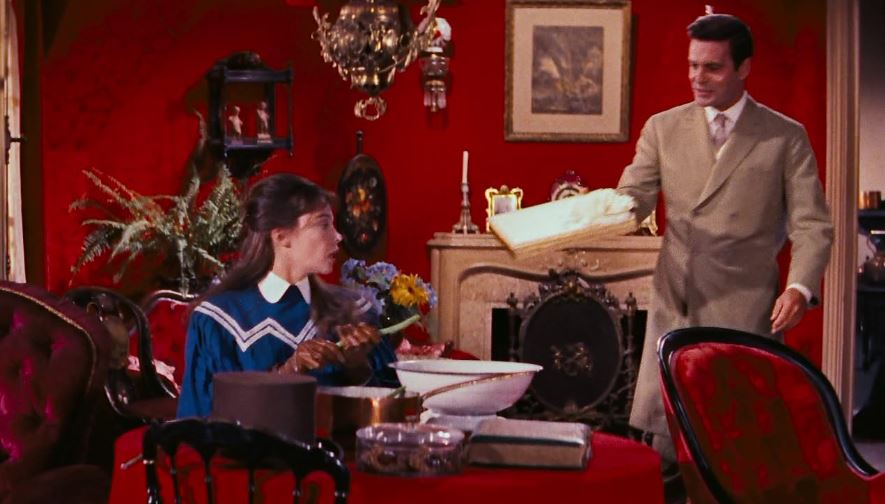
1958’s Gigi, winner of 9 Academy Awards, is a stunning, sumptuous, Fabergé egg of a movie, albeit one in service of a great, unmitigated evil. You knew this, given Maurice Chevalier’s name in the opening credits, but it’s more than that. Much, much more. Or less, depending on how you see it. Above all, Gigi is the last of its breed; a final clarion call for a decade that, whenever studios were given enough rope, righteously insisted that women — girls, grandmas, anyone not in possession of a penis — must, at all cost, be reduced to the sum total of their ability to please men. Every waking moment not devoted to the cause is a moment wasted. And, given the underlying theme (and opening number, thanks to Mr. Chevalier), we won’t bother graduating the class to full womanhood. Always and forever, girls. Infantilization as a national creed. The Belle Epoque as indentured servitude.
The year is 1900. From all appearances, all of France is out for a garden party. Horse-drawn carriages, stylish hats, and enough parasols to choke a kingdom. Behind every tree, popping forth from every corner, is that Chevalier fella; he’s a narrator of sorts, in that it’s his job to insist that he has a purpose other than leering and lurking in search of adolescent femininity. He will talk of little girls, the beauty of getting old, and how, when we remember, it’s usually a cover for our bullshit. Then it hit me: in but a few short years, the whole damn thing will come to an end. Though I have no proof, I’d like to think that’s the point of this pointless exercise. France, like the whole of Europe, is so teeming with rot, so decadent and corrupt and beneath contempt, that it will take a World War to wipe the stink away. As bad as the Western Front was, at least it strapped the leisure class to its back and jumped headfirst into the abyss.

Here, one is reminded of the final passage of Vanity Fair: “Come, children, let us shut up the box and the puppets, for our play is played out.” Not a single member of the cast has a whit of interest in adding shading or complexity. These are types. Simple, easy, and drafted to disappear with the slightest breeze. If they exist at all, it’s to declare that this, dear friends, is not the Paris of the history books, but that of romance novels; the sort where shirtless gendarmes clutch passive maidens within shouting distance of the Seine. A France above and beyond it all; the City of Lights as a refuge from anything resembling life as it is actually lived. A time when how and when to pour coffee is of such singular import that the whole of the Republic rests on the result. An indefensible world, falsely planting its feet in a civilization that long ago slipped from its grasp.
A world where women, once openly shamed, commit suicide with the full approval of the privileged snots who lord over the proceedings. The shamer in question, Gaston, is the cad of the piece, though it stands to reason he’ll be there in the end, waiting to whisk young Gigi away for a life of utter devotion. She’s been trained, you see, by a pair of relatives who can’t bother to leave the house, lest such an act cause a moment’s stress. While they bathe, sip tea, or lounge in assorted gowns, they’ll teach Gigi to walk, talk, sit, and serve. Gigi is first presented as a rebellious sort, a female free spirit in an age unfamiliar with the type, but that’s all a ruse: if she’s playful, it’s to win Gaston. It just takes a while for her feeble mind to catch up to the inevitability.

When Gaston finally realizes that, despite bedding half of Paris, he must settle down with Gigi, he engages in a solo number so inappropriate, it’s a wonder the forces of cancellation haven’t yet stormed the gates. Perhaps no one fears musicals from 70 years in the past. At any rate, Gaston weighs the pros and cons of his budding romance, admitting that, yes, she’s lovely and funny and full of charm, but to quote the man, “She’s a girl, a little girl!” Good god almighty, I feel dirty just for writing it. I mean, Leslie Caron was a woman of 27 when playing the role, but given that Gaston is supposed to be generations ahead of her, we know full well she’s meant to be a teenager. Why else does every other song talk about how wonderful it is to be a geriatric with an erection? And didn’t Gaston try to win her over with licorice and caramels just a few scenes before? I shudder every time I consider that this once passed for entertainment.
And sure, there are advances and retreats, proposals and second thoughts, but we know that the happy endings of the era demanded that for women to leave with a smile, they must be attached at the hip to a creep. Perhaps that’s why we surround such archaic notions with eye-popping wallpaper and frilly dresses. With our minds elsewhere, perhaps we won’t notice that everything we’ve just witnessed is akin to rape. At best, champagne-induced coercion. Fine, there’s a Lerner & Loewe score to class up the joint, but it’s still one ugly way to make a buck. There’d be more musicals, of course, and even a few to again take the top prize, but with Gigi, the nadir was reached. Unless Vincente Minnelli intended the whole thing as a commentary on a dying age. Yes, that sounds nice. I’ll cling to that. Gigi and Gaston, arm in arm, manning the trenches until the poison gas arrives. A new France, with an entirely new set of fools.
Leave a Reply